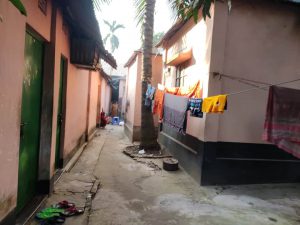EVOLUTION OF THE CHANNELS
The project began in 2016 when GWD, in collaboration with local research firms in Bangladesh, India, and Cambodia, collected data from 180 women in each country every week for a period of a year. The project entered its second, scaled-up phase in 2018 when we opened our first Public Channel and began collecting data from over 1,300 garment workers in Bangladesh, a nationally representative sample of women workers in the sector. During the COVID-19 crisis, the project entered its third phase as we continued weekly phone-based data collection with 1,300 garment workers in Bangladesh. During this time, GWD was the only source of reliable information from workers, since the vast majority of organizations connect with workers through factories and factories were initially closed and then implemented strict entry restrictions. The data resulted in a major improvement in the transparency of global supply chains, and helped better understand how garment workers cope during crises, with an eye to how digital financial services played a role in alleviating economic concerns.
In 2020 GWD also started offering Private Channels to organizations that were looking to build direct and trusted channels of communication with workers form their own supply chain. Since then, we have built Private Channels in Pakistan, Bangladesh and Cambodia and have developed the capacity to build GWD Channels in India, Vietnam, Turkey and Mexico.
THE CHANNELS TODAY
GWD began with a focus on garment workers–the original “G” in GWD. Our approach can now be used in any global value chain in any country–whether it is tea plantations in India or electronics manufacturers in Vietnam–by leveraging the deep knowledge and experience of the GWD team, who have worked across multiple value chains and countries.

GWD is a great complement to, but different from, other worker voice initiatives. We collect data outside of the factory setting, at a time and place where workers feel safe and at ease. Through regular ongoing dialogue with workers, we are able to build a picture over time of their lives and work conditions and build trust with the workers. The methodology is particularly suited for women who may be less comfortable with traditional worker voice mechanisms that operate within or in partnership with factories, given the negative gender dynamics often prevalent in their workplaces. The channel, based on trust and regular communication, is a much-needed safe space for women to share different aspects of their lives and report sensitive issues such as instances of abuse, discrimination, or harassment without fear of retaliation or judgment.
A number of organizations have been involved along the way, including: SANEM and RAPID in Bangladesh, BRAC and Bangladesh Country Office of SNV Netherlands Development Organisation in Bangladesh; TNS and CHHAT in Cambodia; and Morsel Ltd. in India. Laudes Foundation and the Bill & Melinda Gates Foundation have provided financial support along with the Embassy of the Kingdom of the Netherlands in Dhaka.






